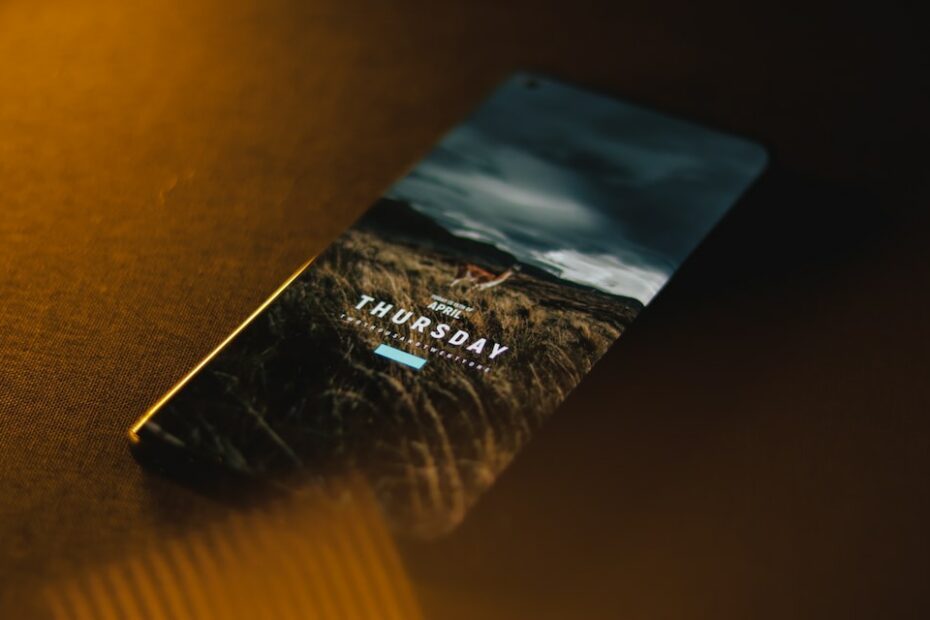Noise cancelling headphones can help to reduce the sound of external noise, which can help to reduce the level of noise pollution that you experience. However, if you are using headphones that are particularly effective at reducing noise, then they may also reduce the level of sound that you are able to hear. This can lead to the sensation of dizziness. It is important to be aware of this potential side effect and to use headphones that are appropriately sized for your head if you are likely to experience it.
The gist of it
Noise cancelling headphones can make you dizzy if you are not used to them. The ear cups of the headphones block out sounds from the outside world, but they also block out your own sounds. This can make it difficult to hear what is happening around you. If you are not used to noise cancelling headphones, you might find yourself feeling dizzy or lightheaded.
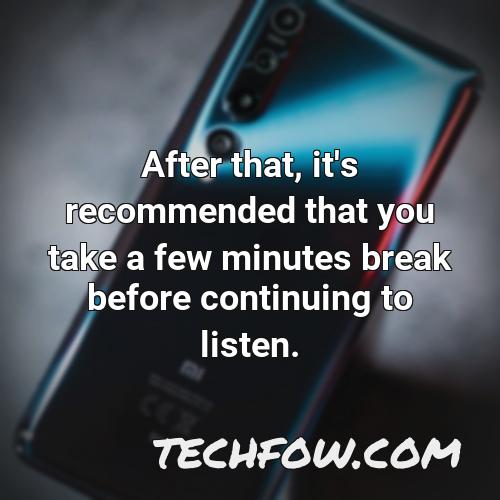
Why Do I Get Dizzy With Noise Cancelling Headphones
When you wear headphones that use active noise cancellation technology, the headphones can create a constant pressure on your eardrum. This can cause headaches, nausea, and even disorientation. The pressure is created because the headphones are constantly blocking out sound waves. When the waves hit your eardrum, it creates a pressure that can be uncomfortable.

Do Noise Cancelling Headphones Have Side Effects
Some people who use noise-cancelling headphones say that they have experienced discomfort in their ears. This discomfort can take a variety of forms, such as a pain in the ears, a feeling that the ears need to pop, dizziness, headaches, or nausea. While this discomfort may be temporary, some people have reported that it has been bothersome enough to stop using noise-cancelling headphones. If you are experiencing any discomfort with noise-cancelling headphones, it may be best to give them a try in a different setting or to stop using them altogether.
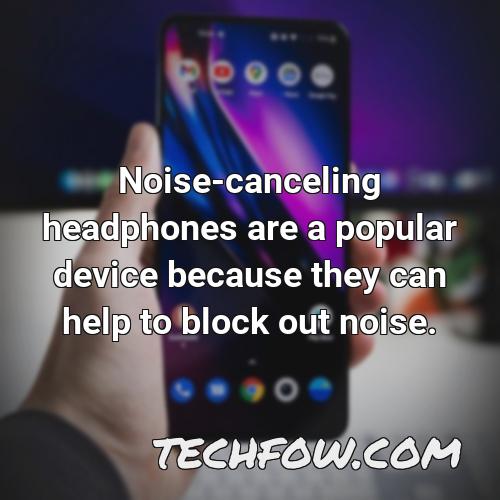
Can Headphones Make You Dizzy
Many people believe that headphones can cause vertigo. It is believed that listening to music at high volumes can damage the inner ear and make it harder for the ear to regulate balance. Loud noises can also increase pressure in the ear canal making it more likely you’ll experience a spinning sensation. Certain sounds can also cause vertigo.
Some people can be especially vulnerable to vertigo due to their genetics. Other people may experience vertigo if they are pregnant or have a history of motion sickness. Finally, some people may experience vertigo simply because they are listening to music at a high volume.
Regardless of the reasons, it is important to be aware of the potential dangers of listening to music on headphones and to take precautions if you are particularly vulnerable to vertigo. If you experience vertigo while listening to music on headphones, it is important to reduce the volume and to stop listening to the music. If the vertigo is severe, you may need to seek medical attention.
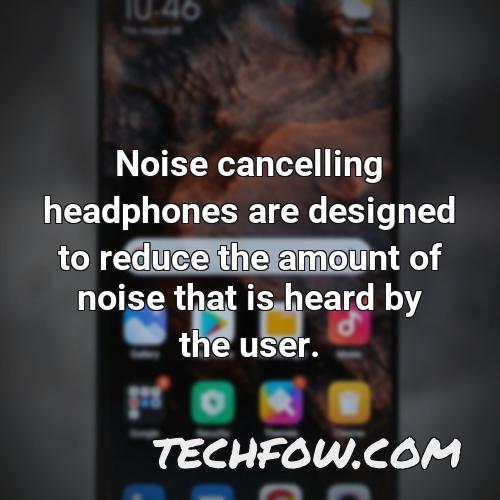
Can Noise Cancelling Cause Vertigo
-
Noise cancelling headphones can cause dizziness and eardrum pressure.
-
If you have something that’s messing with normal auditory input which noise-canceling headphones are doing it’s conceivable that could contribute to a sense of disorientation.
-
Dr. Expansions points state that if you experience dizziness or ear pressure while using noise cancelling headphones, it may be because of the noise cancelling function.
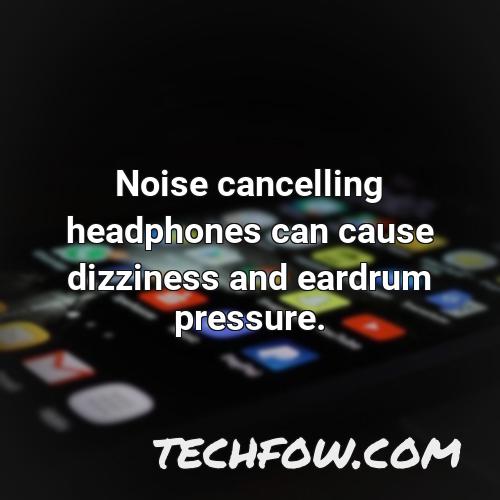
Can You Wear Noise Cancelling Headphones All Day
Some people argue that wearing noise cancelling headphones all day every day might mess up your ability to localize sounds. This is because when you wear these headphones all the time, your brain gets used to not being able to hear certain sounds. This can change your brain’s ability to process sound the way it should.
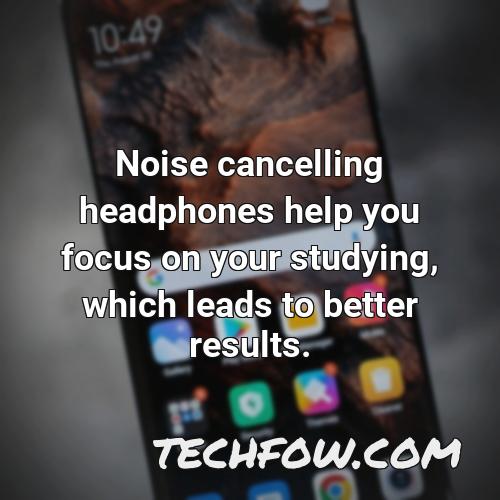
Can Airpods Give You Vertigo
So, some people are saying that using Apple AirPods for a long period of time can lead to vertigo and even hearing loss. The reason for this is that the earphones put pressure on your eardrums and can cause them to swell. This can make it hard for you to hear properly. If you experience these problems and don’t know why, it’s important to see a doctor.

Does Noise Canceling Hurt Your Ears
Noise-canceling headphones are a popular device because they can help to block out noise. However, this technology can also be harmful if the headphones are used at high volumes. When the headphones are used at high volumes, the pressure inside the ear can increase. This can lead to hearing damage.
It is important to use noise-canceling headphones responsibly. If the headphones are used at high volumes, it is recommended that the volume be lowered. Additionally, it is important to keep the headphones away from your ears when they are not in use. This will help to prevent damage to your ears.
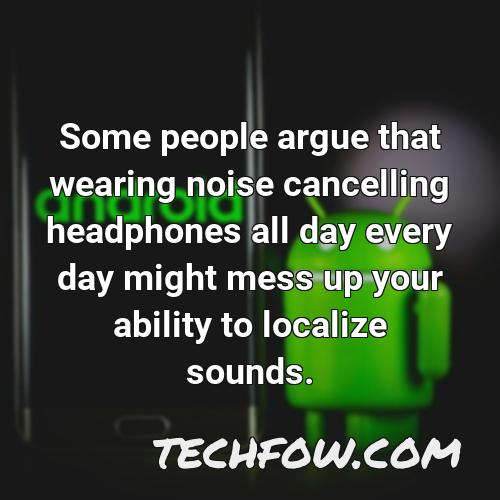
Can Headphones Cause Anxiety
Some people who use earbuds or headphones often experience anxiety or depression. This is because the auditory symptoms, tinnitus and related hearing problems can impact anxiety or depression. Earphone users may also feel isolated and vulnerable when they’re using headphones. This can lead to increased anxiety or depression.
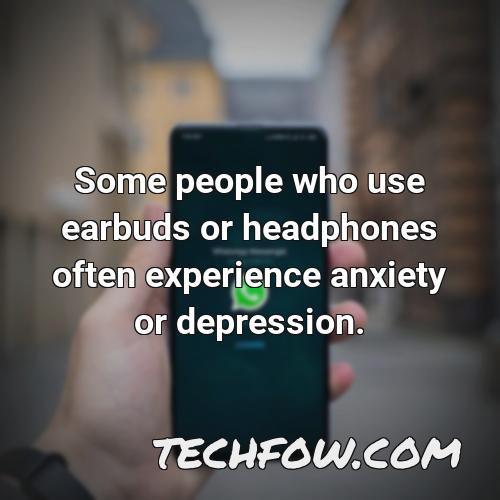
Can You Sleep With Noise Cancelling Headphones
Can you sleep with noise cancelling headphones on?
Yes, you can sleep with noise cancelling headphones on. Noise cancelling headphones are designed to reduce background noises like snoring. They are finely-tuned to detect low-frequency sounds. Such sounds can include airplane engines, air conditioners, and snoring.
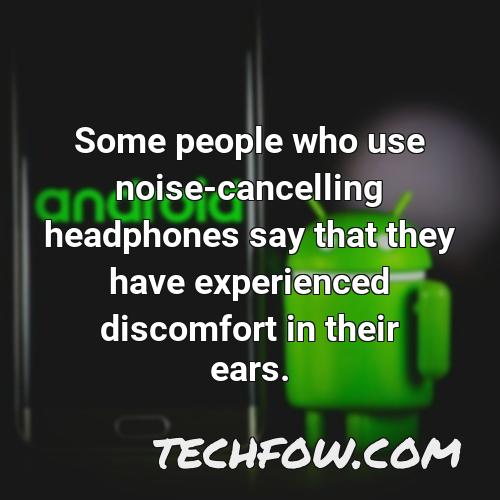
Are Noise Cancelling Headphones Good for Studying
-
Noise cancelling headphones help you focus on your studying, which leads to better results.
-
ANC headphones help block out distractions, which allows you to focus on the task at hand.
-
It is important to find headphones that are specifically designed for studying, as they will help you block out external noise.
-
It is also important to find headphones that have good sound quality, as this will help you to hear the information you are studying more clearly.
-
Finally, it is important to find headphones that are comfortable to wear, as this will help you to stay focused for longer periods of time.
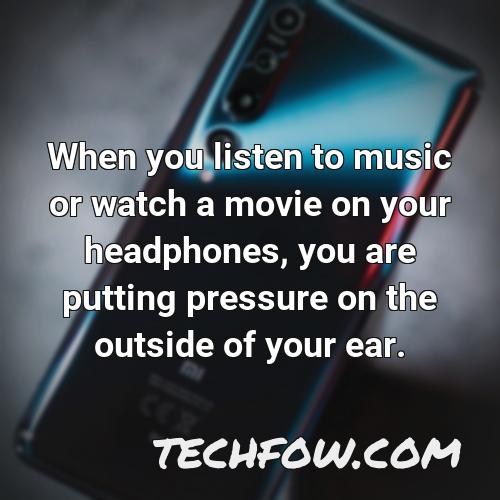
Can Headphones Affect Ear Pressure
When you listen to music or watch a movie on your headphones, you are putting pressure on the outside of your ear. This pressure can cause pain, and in some cases, it can even damage the delicate cartilage in your ear. If you bend or squeeze this cartilage, it can cause pain, and in some cases, it can even cause a skin abrasion that can get infected.
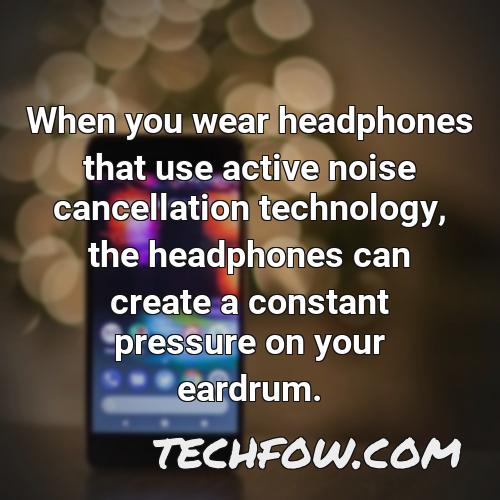
Do Noise Cancelling Headphones Help Ear Pressure
Noise cancelling headphones are designed to reduce the amount of noise that is heard by the user. This can be helpful for people who suffer from ear pressure or other forms of inner ear pain. However, noise cancelling headphones cannot be used during take-off and landing, and they do not protect against pressure changes. Flying can be an uncomfortable experience for a number of reasons, one of which is the pressure changes that occur in the air. These changes can cause pain in the ears, and noise cancelling headphones can help reduce the amount of noise that is heard. However, they are not perfect, and they cannot be used during take-off and landing.
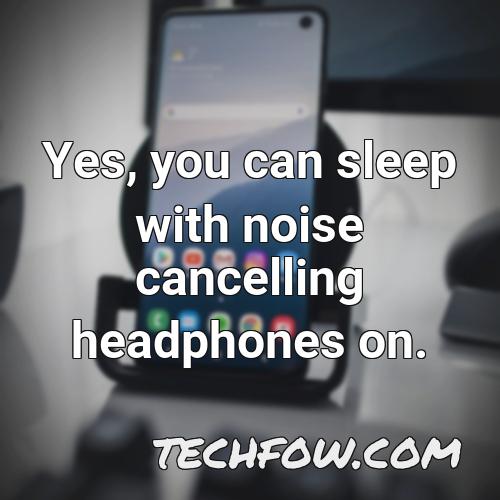
How Long Can I Wear Noise Cancelling Headphones
If you’re listening to music or a podcast on your headphones and you want to reduce the amount of sound that’s coming out, you can do this by wearing headphones with noise cancelling technology. According to experts, you can usually listen to these headphones for a maximum of 60 minutes per day without any harm to your hearing. After that, it’s recommended that you take a few minutes break before continuing to listen.
Conclusions
If you are likely to experience dizziness when using noise cancelling headphones, it is important to be aware of this potential side effect and to use headphones that are appropriately sized for your head. If you do experience dizziness, it is best to remove the headphones and wait until your dizziness has subsided.

